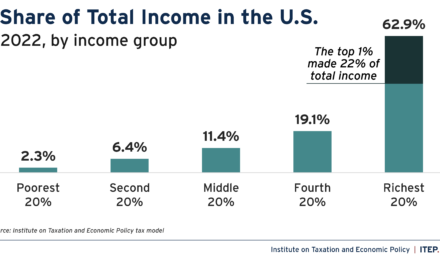
It takes courage to grieve. It takes courage to look at the truth. It takes courage to face one’s demons and reveal long-held secrets.
At the Pasadena Playhouse this July and August, playwright Zora Howard will be challenging audiences to do all those things in her Pulitzer Prize-nominated play, “Stew.” In it, three generations of women gather in a kitchen for a command performance by Mama, who wants them there to prepare an important meal.
It’s what Director Tyler Thomas says is not your typical kitchen sink drama, even though it falls into that genre.
“Folks need to come prepared to laugh their faces off and also to be open to face some really emotional questions,” Thomas said. “They should be prepared to laugh but also be open to having their heartstrings pulled in maybe unexpected and surprising ways.”
Thomas met the playwright and had coffee with her a little over a year ago after being introduced through a mutual friend. So when the Pasadena Playhouse’s artistic director, Danny Feldman, approached her about directing Howard’s play, she was eager to sign on.
“When I read the play, these women sort of materialized in front of me,” Thomas said. “They’re women you know so well. It was almost as if I had heard the play before just sitting in my grandma’s kitchen.”
Thomas, who is a director and choreographer based in New York and was a member of the Lincoln Center Directors Lab, is directing in Los Angeles for the first time. She’s been impressed with the work that the Tony-award winning theater is doing.
“From my first conversations with Pasadena Playhouse, their ethos has been really inspiring to me,” Thomas said. “Their human focus, their people-first (mentality) — it’s really in alignment with how I want to be a part of building out a future of the American theater. They’ve really welcomed my questions in terms of reimagining how the theater could work … I found them really eager, willing and ready to be a part of building a new future for the American theater.”
“Stew” is a show that Thomas said gives her the opportunity to create a space that felt familiar to Black people.
“I wanted to create a container in which Black people could feel seen while at the same time turning something familiar on its head — to give us a new way of looking at the kitchen sink drama. I think Zora is attempting to be in dialogue with something very psychological,” Thomas said. “I wanted to take that familiar aspect and distort it, to invite us to look beneath the commonplace layers.”
LisaGay Hamilton, an actor with a long list of theater, film and television credits — including a recent performance in Broadway’s “To Kill a Mockingbird,” plays the role of Mama. She also cites the Pasadena Playhouse environment as an impressive place to work and create art.
“It is extraordinary that they just won the Tony for Best Regional Theater and I can see why they did,” Hamilton said. “It’s a real family wanting to provide nothing but support for their actors. The staff and stage management are really there for you so that you can do the best that you can. You can’t ask for a more safe space to make mistakes and grow and do all the things you need to do to create a full character.”
Despite a long list of acting credits — including some of theater’s most iconic characters, Hamilton said she doesn’t think she’s ever played a character like Mama before, something that both attracted her to the role and scared her about it.
“There’s a particular style that I didn’t necessarily grow up with,” Hamilton said. “For me, it’s a really transformational moment to create this character who is very, very demanding. Loves big, is harsh, is not a touchy-feely woman. She wants attention and she wants attention now. But she’s also a mother who has lost a child, so there’s a lot on her plate.”
Mama is an African American woman in her mid- to late-50s who has gathered her family into the kitchen to celebrate an anniversary. Everyone knows how important the meal is to her. As the women make the mean, you learn about their “ingredients” — what makes them who they are, their baggage and their interests..
Mama is a character, Hamilton said, who demonstrates the choices Black women must make and displays the cycles in the life of a Black woman and her family. It’s an exploration of the consequences of choices and of what grief can do to a person.
It is that struggle with grief that Thomas said makes the 90-minute play more culturally relevant on a global scale than it was even a few years ago when it first premiered. She pointed out that society is grappling with grief.
“How do we move forward after the loss of millions of people due to COVID?” Thomas asked. “As we as a country continue to grapple with the murder of Black people in their homes and their streets? As we as a country continue to grapple with the insanities of losing children in schools to gun violence?
“The onslaught of violence and death around us makes loss ubiquitous in society at this moment. You would be hard-pressed to find a person who has not, in some way, had to grieve something or someone over the past three years.”
“Stew,” she said, manages to grapple with those questions by telling a story that is both unapologetically specific and courageously universal. The playwright invites the audience into the lives of these Black women as a way of engaging the question of how people deal with grief and loss.
As she works with her designers, Thomas said she has been interested in creating a space that is simultaneously familiar, but also abstracted to be a psychological container.
“I knew pretty immediately that I wanted to create a space that felt like it was carved out of a void, that felt like it had this sense of contrast between the safety and refuge of the home and the unpredictability of the external world,” Thomas said. “In the entire play, Mama is trying to keep everybody in this house. Inside of that, there is a psychological layer to what she’s trying to keep out by trying to keep everyone in.”
To capture that duality, the Pasadena Playhouse created lighting tricks that can reveal the kitchen as more of a psychological mental space.
Hamilton cited the writer’s strike as another reason that this play is timely and relevant.
“Given the strike, it’s wonderful to hear good writing,” Hamilton said. “What Zora brings to this is extraordinary writing. She’s a wonderful, wonderful young writer who is coming into her own and very, very quickly becoming well-established.”
And even while her own character was not familiar to her, Hamilton believes the play will offer people a familiar slice of life.
“This is a very universal family unit,” Hamilton said. “People can recognize the youngest daughter and the middle daughter and the older daughter — everyone is very recognizable and very accessible. With the strike going on, it’s the perfect time for people to come together to be in a public space watching a public performance and hearing language that is beautiful and rhythmic; seeing four women tell a really great story.”
Thomas described the four actors as incredible women who are masters of their craft. In addition to Hamilton, actors include Roslyn Ruff, Jasmine Ashanti and Samantha Miller.
“We were attracted to each of these women for the ways in which the immediacy of their connection to their characters — each of them brings in an understanding to each of these characters that are so innate,” Thomas said. “They are really warm, collaborative souls who welcome the complexity and dramaturgical rigor, but also know how to play.”
Thomas wants people to embrace the play as both a drama and a comedy.
“There are dramatic circumstances, but it’s a hilarious ride,” Thomas said. “Zora is a master in her craft because she’s delivering them both in full measure — the comedy, the drama, the levity and the real hard-hitting drama.”




